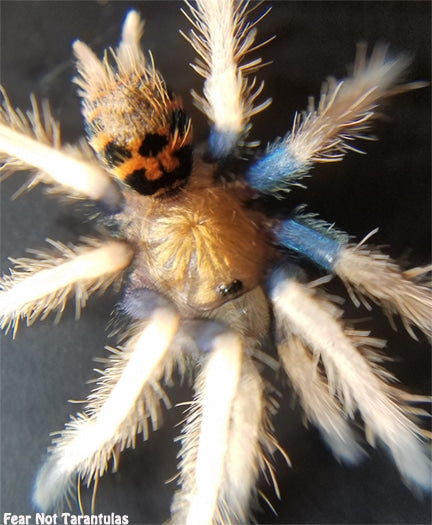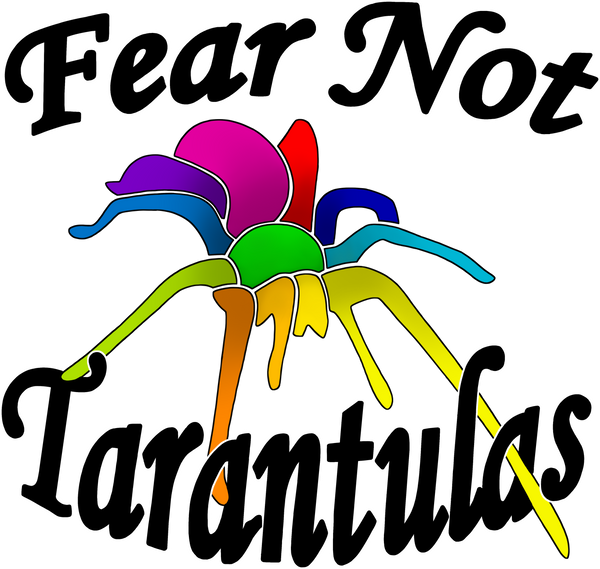Fear Not Tarantulas, Inc.
Chromatopelma cyaneopubescens (Green BottleBlue, GBB Tarantula) about 1" - 1 1/4" FREE for orders $350 and over! (after discounts and does not include shipping) One freebie per shipment.
Chromatopelma cyaneopubescens (Green BottleBlue, GBB Tarantula) about 1" - 1 1/4" FREE for orders $350 and over! (after discounts and does not include shipping) One freebie per shipment.
Couldn't load pickup availability
EATING: They are eating small to medium red runner roaches but will also eat small crickets or mealworms.
HABITAT: This species would do nicely in one of our 24 oz habitats with silk leaves to web onto. https://fearnottarantulas.com/collections/supplies-and-other
Chromatopelma cyaneopubescensThis highly sought after species is one of my favorites. They are brightly colored, don’t usually hide from you, eat very well and are very easy to care for. Adult GBBs have a vibrant orange abdomen, metallic blue legs, a blue-green carapace and is covered with orange hairs. It is a great experience to raise one up from a spiderling and watch it change with each molt. This is an excellent display tarantula! They are very low maintenance and a pet you can leave for a couple of weeks with no worries. Feeding time is always fun with these guys as they are aggressive eaters and will wrestle and take down prey with great gusto.
Name Pronunciation:
Chromatopelma (kroh-maa-tuh-PEL-muh) cyaneopubescens (sy-aan-ee-o-pyoo-BEH-sinz)
* Adapted from The American Tarantula Society
Name and Description History:
Eurypelma cyaneopubescens Strand, 1907
Delopelma cyaneopubescens Petrunkevitch, 1939
Chromatopelma cyanopubescens Schmidt, 1995
New World, Terrestrial
Size: About 6”
Growth Rate: Medium / Fast
Natural Habitat: Venezuela, northern. dry scrub land
Housing Needs: Terrestrial setup. They are prolific webbers, so if foliage is put in their habitat, it helps if it is plastic so it can act as an anchor for better webbing. They frequently fill their entire habitat with webbing. Dry substrate and low humidity is important for this very hardy species.
Temperament and Defensiveness: This is not an overly aggressive species as mature adults, but juveniles have a lot of spunk. They are not usually easily spooked.

Share












